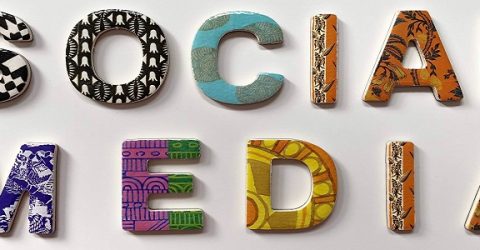Social media platforms – What’s the difference?

If you’re unfamiliar with social media, it can seem very strange and mysterious.
Their logos are iconic and their names are ubiquitous, yet the mechanics of different social media platforms may seem confusing and intimidating to newcomers.
Some are messaging services, others cater to specific interests, and a few allow you to create and share anything you want.
Below, we’ve summarised the key distinctions between the different social media platforms with the greatest UK presence.
Facebook has introduced millions of people to social media, especially as its app is pre-installed on most smartphones.
It features a scrolling timeline filled with other people’s content, organised according to what Facebook thinks you might like to see. Users can like, comment on and share other posts.
Many businesses have Facebook pages listing contact information and news, though Facebook’s popularity peaked some time ago and it’s viewed as uncool by Millennials.
The celebrity’s favourite platform, Twitter posts (known as tweets) were historically limited to just 140 characters plus images. Today, the limit is a still-concise 280 characters.
Unlike Facebook, it’s possible to view newest posts by tapping the Latest tab, though content is normally displayed according to what Twitter thinks you might be interested in seeing.
Account anonymity led to Twitter being associated with cyberbullying (known as trolling), but recent changes have allowed users to prevent strangers commenting on their tweets.
Following its $1 billion acquisition by Facebook, Instagram is beginning to resemble its parent site in terms of both functionality and the rambling, politicised nature of user posts.
That’s a shame, because Instagram excels as a photography site. You post images of anything you’ve photographed, connecting to other users and liking/commenting on their images.
A friendlier community than either of the sites listed above, Instagram does require a degree of photographic proficiency, and it only works on camera-equipped smartphones or tablets.
Snapchat
The Millennial’s social media platform of choice, Snapchat is a glorified messaging app.
Like Instagram, it revolves around photographs and short videos, though content disappears after it’s viewed. Instagram’s Stories function is a blatant Snapchat imitator.
Photos can be doctored with filters, effects, lenses and captions, before being shared exclusively among other Snapchat users you’ve previously approved as ‘friends’.
While Snapchat has many advantages, the self-deleting nature of its content leaves a gap in the market for WhatsApp – another modern take on the classic SMS text message.
Messages are delivered almost instantly to individual or multiple recipients, with Group Chats great for organising events or keeping in touch with several people at once.
Setting up a WhatsApp account is child’s play, and it’s ideal for sharing photos and videos with account holders listed in your phone’s contacts.
YouTube
As well as being a social media platform, video hosting site YouTube is also the world’s second-largest search engine behind parent company Google.
Registered users can upload content into their own channels, which other people can subscribe to for free and watch at any time on most internet-enabled devices.
Other popular YouTube uses include watching music videos and viewing gaming footage – the latter underpinning Google’s attempt to fend off the challenge of rival sites like Twitch.
Surprised to see business networking site LinkedIn on this list? You shouldn’t be, since it’s the world’s leading professional social media platform.
Because your CV and career history are linked to your profile, bad behaviour on LinkedIn is rare. However, there is a huge amount of embellishment and laurel-polishing.
If you want to develop your career, a LinkedIn profile is essential. It’s not the easiest site to navigate, but it’s great for finding new job opportunities and keeping in touch with people.
More cerebral than the other entries on this list, Reddit is a microblogging site like Twitter, where users can write about pretty much anything.
Unlike Twitter, content isn’t all jumbled together. Over a million subreddits exist, covering very specific topics.
Users can express positive and negative sentiments towards individual comments, effectively self-regulating the Reddit community and encouraging respectful, intelligent debate.






